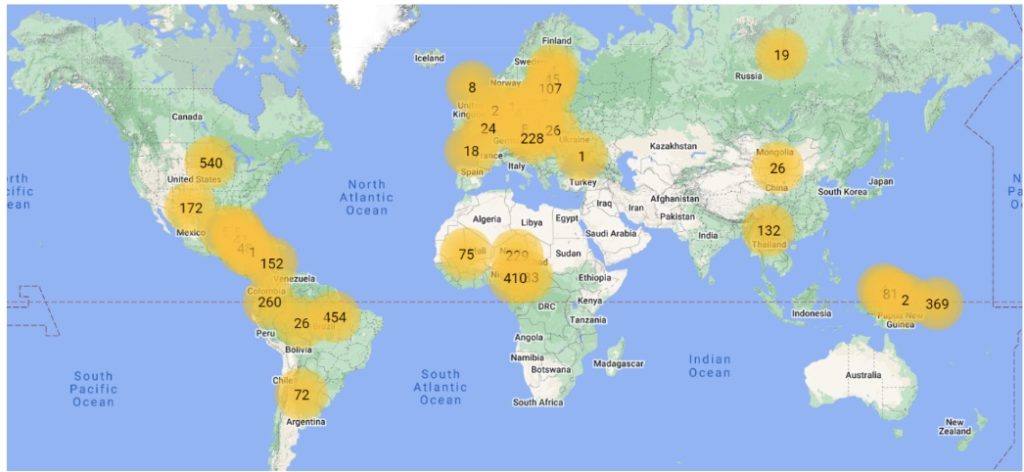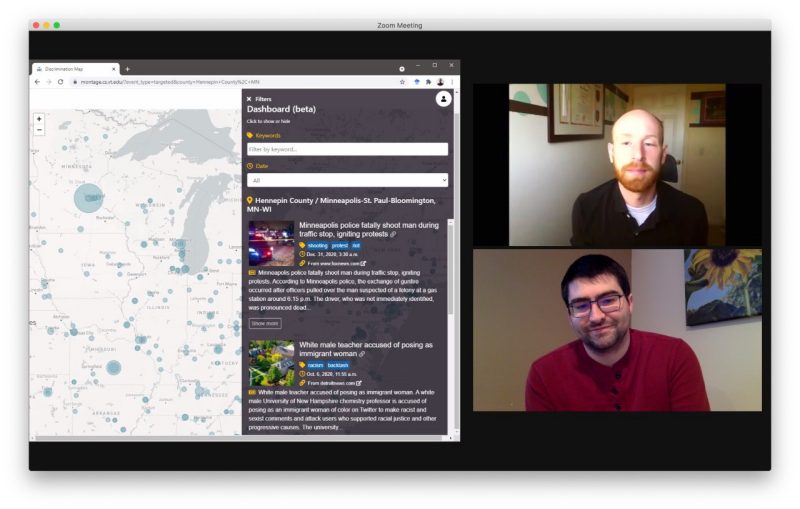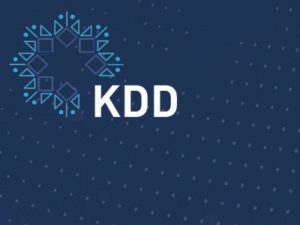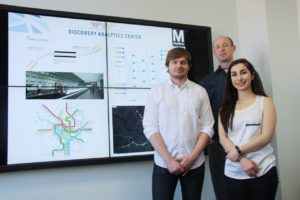Sanghani Center leads collaborative study to improve both discovery and traceability of illegally-sourced timber

Virginia Tech has received funding from the National Science Foundation for a collaborative research project that brings machine learning and data science research to the domain of Stable Isotope Ratio Analysis (SIRA) to improve discovery and traceability of illicitly-sourced timber products. Illegal timber trade (ITT) is the most profitable natural-resource crime, valued at 50-152 billion U.S. dollars per year.
Naren Ramakrishnan, the Thomas L. Phillips Professor of Engineering and director of the Sanghani Center for Artificial Intelligence and Data Analytics, is serving as principal investigator for the project with the University of Washington, World Forest ID, and Simeone Consulting, LLC.
“To enforce timber regulations and international frameworks, there is a need for accurate, cost-effective, and high-throughput tools that can be used to identify and trace illegally sourced timber products,” Ramakrishnan said.
The team brings together data scientists, analytical chemists, geospatial and remote sensing scientists, practitioners, international trade and supply chain specialists, and field experts who conduct reference sample expeditions to bring novel data science approaches to analyzing a range of geospatial and remotely sensed datasets.
Patrick Butler, senior research associate, and Brian Mayer, research associate at the Sanghani Center will be part of the Virginia Tech team.
Key foci of this project include machine learning methods for SIRA analytics; location determination from isotopic ratios; and active sampling strategies to close the loop. Foundational machine learning contributions in science-guided machine learning, contrastive and generative learning paradigms, and active sampling algorithms will support not only the specific domain of SIRA but other adjacent domains in environmental conservation, agricultural forecasting, and smart farm modeling.
“For example, what we learn from our research could be directly applicable to tracing many other illicitly-sourced products and product inputs, including forest risk commodities such as cocoa, soy, and beef,” said L. Monika Moskal, professor at the University of Washington.
The study will have broad and far-reaching impacts on American security and prosperity, as well.
“Many key U.S. adversaries rely on illegal logging to finance their activities,” said Jade Saunders, executive director at World Forest ID. “Detecting and curbing such activities will moderate sources of regional instability and threats to U.S. interests.”
The project will lead to improving geospatial prediction accuracy of product origin and will enable a cost-benefit analysis to minimize future data collection costs and optimize prediction gain. Finally, this project will also positively affect U.S. economic competitiveness by reducing competition with illicit actors and moderating risks to international trade, Ramakrishnan said.



